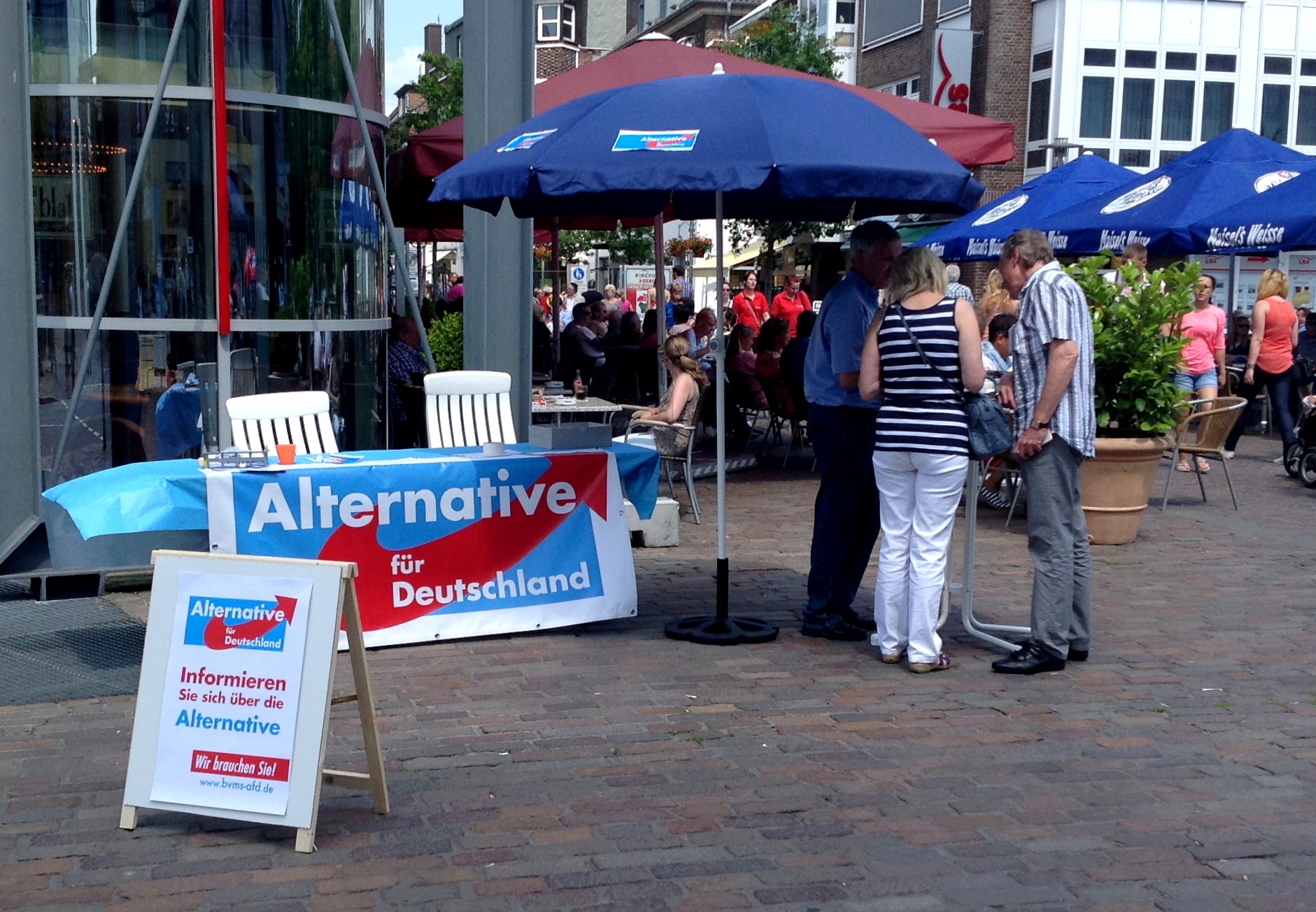Such fears have already forced the chancellor of Germany, Angela Merkel and her main rival to call on their supporters for an active vote on Sunday.
Against this background, the majority considers the issue with the fourth term of Merkel as Chancellor already solved, although recently she fell under the flurry of criticism because of her policy on refugees. The results of the polls show that turnout at the elections may be low.
On Thursday, poll conducted by GMS showed that the proportion of those who do not plan to vote or have not yet decided, is now 34%, which is higher than 29% of those who did not vote in the last elections in 2013.
"My request to all is that they vote and vote for those parties that adhere to our constitution by 100%," Merkel said on Thursday on the MDR radio, pointing to AfD, which some commentators consider almost a Nazi party.
Some of the members of this party called on the Germans to rewrite history books in the era of Nazism; the party was repeatedly criticized for denying the Holocaust.
Although the polls show that the conservative Merkel, who is trusted by stability-loving Germans, because they believe that she can resist unpredictable leaders in the United States, Russia and Turkey, is on the road to victory, the future of the parliamentary coalition is raising questions.
Most respondents believe that low turnout can increase the popularity of AfD, which gained popularity, focusing on migration and security issues.
As the first extremely right-wing party is going to enter the German parliament for the first time in more than 50 years, the comments of some of its leading members have provoked outrage. This month, one of the leaders said that Germany should be proud of achievements of its soldiers in World War II.
Earlier it was reported that German employers' unions are afraid that if the Eurosceptic party "Alternative for Germany" eventually enters the Bundestag, this will negatively affect the country's economy. And economists share their opinion.
Right-wing radicals in the German parliament will only deter investors, according to representatives of employers. At the moment, the situation in the German economy is the best. But what will happen if representatives of the "Alternative for Germany" party take their seats in the Bundestag?
This week the Federation of German Industry (BDI) gave an excellent forecast. According to the union this year, the economy of Germany will grow by more than 2%, adjusted for calendar effects. This will be the strongest indicator for the last six years, according to the quarterly economic report of BDI.
source: dw.de
Against this background, the majority considers the issue with the fourth term of Merkel as Chancellor already solved, although recently she fell under the flurry of criticism because of her policy on refugees. The results of the polls show that turnout at the elections may be low.
On Thursday, poll conducted by GMS showed that the proportion of those who do not plan to vote or have not yet decided, is now 34%, which is higher than 29% of those who did not vote in the last elections in 2013.
"My request to all is that they vote and vote for those parties that adhere to our constitution by 100%," Merkel said on Thursday on the MDR radio, pointing to AfD, which some commentators consider almost a Nazi party.
Some of the members of this party called on the Germans to rewrite history books in the era of Nazism; the party was repeatedly criticized for denying the Holocaust.
Although the polls show that the conservative Merkel, who is trusted by stability-loving Germans, because they believe that she can resist unpredictable leaders in the United States, Russia and Turkey, is on the road to victory, the future of the parliamentary coalition is raising questions.
Most respondents believe that low turnout can increase the popularity of AfD, which gained popularity, focusing on migration and security issues.
As the first extremely right-wing party is going to enter the German parliament for the first time in more than 50 years, the comments of some of its leading members have provoked outrage. This month, one of the leaders said that Germany should be proud of achievements of its soldiers in World War II.
Earlier it was reported that German employers' unions are afraid that if the Eurosceptic party "Alternative for Germany" eventually enters the Bundestag, this will negatively affect the country's economy. And economists share their opinion.
Right-wing radicals in the German parliament will only deter investors, according to representatives of employers. At the moment, the situation in the German economy is the best. But what will happen if representatives of the "Alternative for Germany" party take their seats in the Bundestag?
This week the Federation of German Industry (BDI) gave an excellent forecast. According to the union this year, the economy of Germany will grow by more than 2%, adjusted for calendar effects. This will be the strongest indicator for the last six years, according to the quarterly economic report of BDI.
source: dw.de





